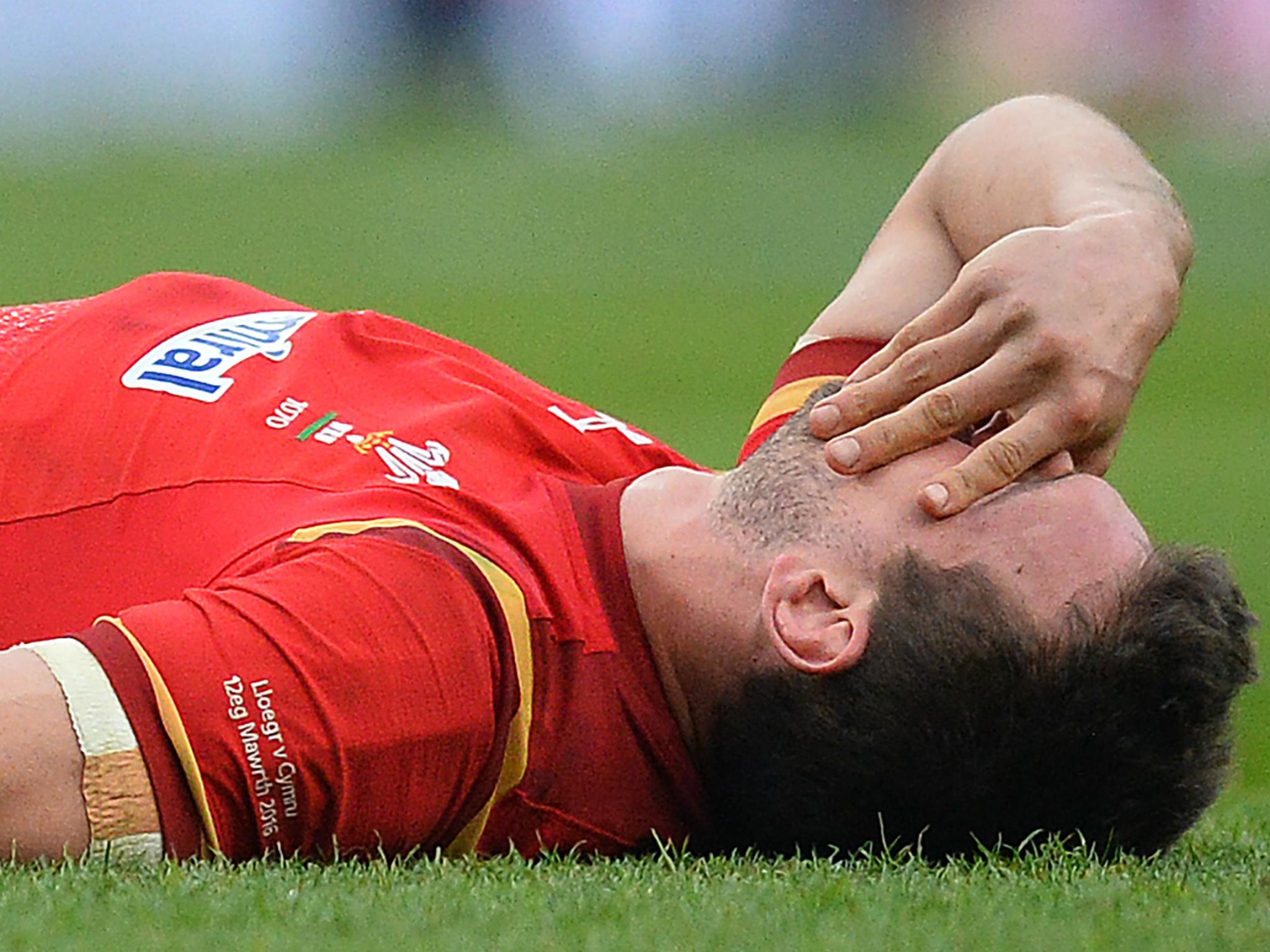Rugby hasn’t gone soft, it’s gone too hard - Joe Marler's England retirement is a reminder of that
Marler's England retirement leaves rugby with questions to answer about the mental toll it has on players

Your support helps us to tell the story
From reproductive rights to climate change to Big Tech, The Independent is on the ground when the story is developing. Whether it's investigating the financials of Elon Musk's pro-Trump PAC or producing our latest documentary, 'The A Word', which shines a light on the American women fighting for reproductive rights, we know how important it is to parse out the facts from the messaging.
At such a critical moment in US history, we need reporters on the ground. Your donation allows us to keep sending journalists to speak to both sides of the story.
The Independent is trusted by Americans across the entire political spectrum. And unlike many other quality news outlets, we choose not to lock Americans out of our reporting and analysis with paywalls. We believe quality journalism should be available to everyone, paid for by those who can afford it.
Your support makes all the difference.This week more than ever has felt as if professional rugby union stands at a crossroads.
A few days after this column picked apart Steve Diamond’s “old school” approach to player welfare and concussion, the Sale director of rugby appointed his old mate Dorian West as forwards coach. It hardly screamed progressive.
The next day England and Harlequins prop Joe Marler called time on his international career at the tender age of 28, scarred by the relentless mental and physical toll taken by a sport which seemingly doesn’t know when enough is enough.
Many scratched their heads at Marler’s decision to walk away one year before the World Cup but anyone who has spoken to him about his memories of 2015, when Stuart Lancaster’s men bombed out of their own tournament at the pool stages, will realise the prospect of another global tournament was not a prospect he’d relished.
In 2016 Marler stood down from England’s tour to Australia – where they won the Test series 3-0 – citing the relentless nature of a season which had effectively begun almost two years earlier with the home World Cup. His latest decision to step away from international rugby feels like an almost inevitable conclusion to his uneasy relationship with life in the public glare.
He steps away from the limelight and we wish him well.
But Marler’s story should also be a reminder that rugby’s relentless schedule does not just take a physical toll but also a mental one, where commerce drives everything, winning trumps all and only the strongest survive.
The Rugby Players Union has done some excellent work in this field, although it surely needs to be far more vocal in calling for a dramatic reduction in training and playing loads for professional players who are taken to the mental and physical edge on a daily basis.

Being a professional sportsman is a 24-7 occupation and winning at all costs adds a mental burden to those involved which cannot be underestimated.
Former Sale fly half Dan Mugford, at the centre of a concussion storm in 2016 when his enforced substitution so enraged Diamond, told the Rugby Paper a year later he’d twice attempted suicide following his release by the Premiership outfit at the end of that season.
Mugford’s story really should have stopped us all in our tracks. It hardly registered.
If Sam Warburton’s recent premature retirement through injury should have made us sit up and take notice of the physical toll taken on players, so Marler’s story should have us waking up to its potential psychological effects.
Back to the crossroads. Where does the sport go from here? We all know the players are being stretched to breaking point but can any of us do anything to prevent more Marlers, Mugfords or Warburton’s?
Wasps left three of their players out of their starting line up to face Newcastle on Friday night after they were only able to train with the club on Thursday after taking part in an England training camp in the early part of the week.
Bath did likewise with Zach Mercer and Joe Cokanasiga for their clash with Saracens at Allianz Park on Saturday.

Both moves were entirely sensible and the respective clubs should be applauded for considering their players welfare. But it feels like tokenism. Like so much in professional rugby at the moment, decisions are being taken on a wing and prayer.
Men like Dorian West and Diamond, old-school to the core, will see little value in managing their players’ emotional, physical and psychological welfare. They are of a different age where men were men and players played.
“Rugby is rugby,” West said in 2010 after seeing his Northampton charge Chris Ashton knocked unconscious early in the first half of England’s Test against South Africa before playing on regardless.
“I’ve been in that position myself and you just want to stay on and play. Chris wanted to stay on the pitch and the only thing you can do in that situation is monitor a player.”
Many who know West say his views have hardly changed. Steve Diamond will not be the man who turns him.
But as the game evolves, intensifies and challenges more and more, surely it is time for more enlightened views in this space?
The RPA needs to find its voice and the money men need to take a backseat and listen. Professional rugby demands too much of its participants both mentally and physically. Minds and bodies need protecting.
The sport hasn’t gone soft, it’s gone too damn hard.
So, back to that crossroads.
Join our commenting forum
Join thought-provoking conversations, follow other Independent readers and see their replies
Comments